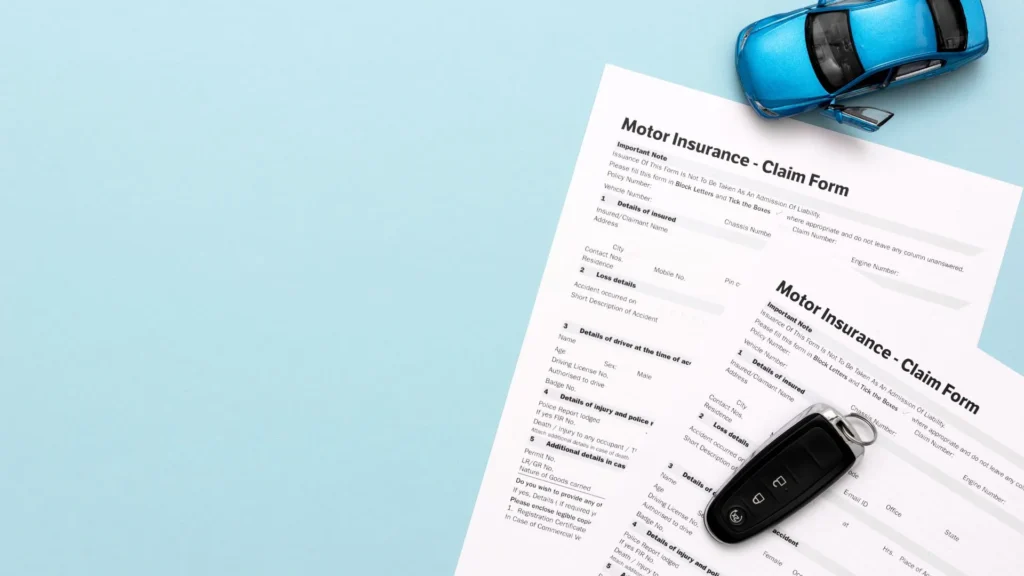The next time you plan on renting a vehicle, you may wonder if your auto insurance covers rental cars.
While it may be the case, asking your auto insurance agent about your personal policy’s coverage is advisable before renting a car.
Additional protection, such as collision or comprehensive coverage, for your vehicle depends on your needs and budget.
They can provide extra protection in case of an accident. Auto insurance with Beem provides the required coverage for damage to your vehicle, damage to other vehicles or property, and injuries to yourself or others.
Meanwhile, let’s explore the answer to the frequently asked question: Does my auto insurance cover rental cars? We will also explore the need for auto insurance for rental cars and help you make an informed decision.
What Does My Auto Insurance Cover?
The answer depends on the specific policy and the insurance provider. Different states have different rules about insurance, but most basic auto insurance policies include six types of coverage.
- Bodily Injury Liability: This coverage applies when you cause injuries to others. It protects you and your family from driving someone else’s car with permission. It’s recommended to have liability insurance that surpasses the state-required minimum to safeguard your assets adequately.
- Medical Payments or Personal Injury Protection (PIP): It covers medical expenses for both you and your passengers in the event of an accident. It can also include lost wages and replacement services. It may even cover funeral costs.
- Collision Coverage: If your car is damaged in a collision with another vehicle, this coverage reimburses you for repair costs minus the deductible.
- Property Damage Liability: It pays for damage you cause to someone else’s property, such as their vehicle or structures like fences or buildings.
- Comprehensive Coverage: Comprehensive insurance covers non-collision-related damage, including theft, fire, vandalism, and natural disasters. It also covers windshield repairs.
- Uninsured and Underinsured Motorist Coverage: This protects you if you’re in an accident with an uninsured or underinsured driver. It also applies in hit-and-run incidents or if you’re struck as a pedestrian.
Is Auto Insurance Required For Rental Cars?
No, an auto insurance policy is not required to rent a car. Rental agencies typically provide minimal vehicle coverage, meaning you could be held responsible for substantial expenses in an accident if you don’t have car insurance.
Further, auto insurance is not too expensive, and it is easy to save money on auto insurance. To ensure adequate protection, there are a few options available.
Buying Rental Car Insurance
Rental car companies often offer their customers various insurance coverage, such as collision damage waiver (CDW) or loss damage waiver (LDW). These options provide additional protection for the rental and relieve you of financial responsibility in case of damage or theft. However, purchasing these policies from the rental company is not mandatory.
Credit Card Coverage
Several credit card companies offer rental car insurance as a benefit. Review your credit card’s terms and conditions or contact your card issuer to understand the extent of coverage offered and any requirements or limitations.
Standalone Policies
Another option is obtaining a standalone policy from a third-party insurance provider specializing in rental car coverage. These policies provide comprehensive protection and may be a suitable alternative to relying solely on the rental company’s insurance or credit card coverage.

Does My Auto Insurance Cover Rental Cars?
Most auto insurance policies extend coverage to rental cars when used for personal purposes, but it’s essential to review your policy or consult your insurance provider.
If you possess comprehensive and collision insurance, it’s likely that your rental car will be covered in case of damage, theft, or totaled, provided the rental vehicle is of similar value to your car.
However, it’s important to note that you will still be responsible for paying the deductible, a predetermined amount subtracted from the claim payout, if you decide to file a claim with your insurer.
If your policy offers adequate coverage, it may be prudent to decline the rental company’s insurance options and save on additional costs.
However, if your existing policy falls short or you need more clarification about its provisions, consider purchasing insurance from the rental company to ensure comprehensive protection during your rental period.
Auto Insurance for Rental Cars: Should I Get One?
While your auto insurance can cover rental cars, determining whether to get additional insurance can be a complex decision. Several factors influence this choice, including the level of coverage provided by your existing policy, the value of the rental vehicle, and your personal risk tolerance.
If you have comprehensive collision coverage on your auto insurance, it will likely extend to rental cars, protecting against physical damage. However, remember that filing a claim for damages could lead to higher future premiums.
On the other hand, if your policy does not adequately cover rental cars or you prefer to avoid potential premium hikes, purchasing the rental company’s insurance can offer peace of mind and shield you from unexpected expenses.
Ultimately, the decision to get additional auto insurance for a rental car rests on your circumstances. Carefully evaluate your existing policy, assess the risks, and consider the value of the rental vehicle to make an informed choice.
Conclusion
So, does my auto insurance cover rental cars? The extent of coverage for rental cars under your auto insurance policy depends on your policy’s specific terms and conditions.
While most policies provide some range, reviewing your policy and consulting your insurance agent to understand the details is crucial.
If your existing policy offers comprehensive liability, collision, and comprehensive coverage for rental vehicles, you may not need additional insurance from the rental company.
If your policy falls short or you prefer extra protection, acquiring the rental company’s insurance can provide peace of mind during your rental period.
Making an informed decision focusing on your requirements and preferences is essential to ensure adequate protection.
Frequently Asked Questions
1. Is Rental Car Insurance Mandatory?
No, rental car insurance is not mandatory in most cases. If your existing auto insurance policy covers rental cars adequately, you may decline the rental company’s insurance options. However, confirming the coverage details with your insurance provider and carefully reviewing your policy is essential to protect you.
2. Will My Credit Card Cover Insurance for Rental Cars?
Various credit card companies offer rental car insurance as a perk, but the coverage varies depending on the card issuer and specific terms. Reviewing your credit card’s benefits guide or contacting your card issuer to understand the extent of coverage provided and any requirements or limitations is crucial.
3. What If I Don’t Own a Car but Need to Rent One?
If you don’t own a car and do not have auto insurance, you may still be able to rent a car. Rental car companies typically offer insurance options for customers without personal auto insurance. However, these policies may be more expensive, so comparing prices and coverage options is advisable before deciding.





























